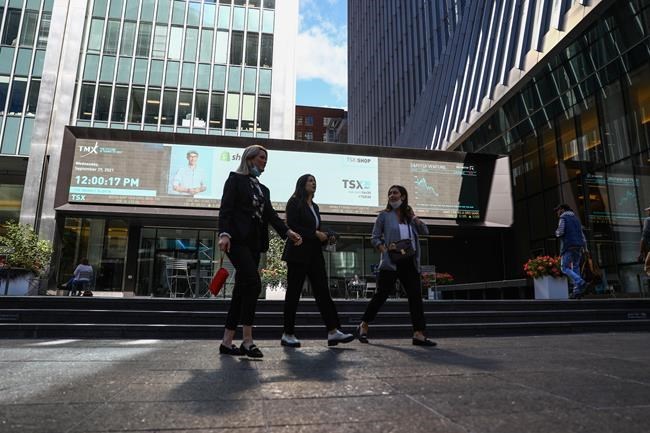TORONTO — More work needs to be done to improve Indigenous representation on corporate boards and in business, according to a panel of Indigenous women in the business world.
"There are so many highly talented and capable Indigenous people in this country that could take those seats on boards, but we have to ensure that we're ... looking outside of the criteria that we've always looked at," said Tabatha Bull, president and CEO of the Canadian Council for Aboriginal Business.
Corporate boards should expand their criteria when seeking new members, said Bull, as Indigenous people are often excluded because they lack things like top management experience.
One common criteria for board positions is chief executive-level experience, said Bull.
"We know that there's a barrier to have Indigenous people on the C-suite," said Bull.
By sticking to these kinds of criteria, boards may be missing out on a whole group of people, she said.
"If we continue to look at that past resume, we're going to be limited into how we can actually have real talented, incredibly smart, Indigenous women and Indigenous people on boards."
Bull spoke at a virtual panel hosted by the Empire Club of sa╣·╝╩┤½├Į, alongside Jenn Harper, the founder and CEO of Cheekbone Beauty Cosmetics Inc., and Tammy Brown, national industry leader for industrial markets at KPMG in sa╣·╝╩┤½├Į.
Brown said that boards should consider the outcomes they're seeking from new appointments instead of the traditional criteria they have relied on, and consider the capabilities of potential candidates beyond their resumes.
"We would look to recruiters who have the ability to bring a diverse group and not just the traditional mainstream recruiters," she said.
Moderator Caitlin Tolley, legal counsel for the Indigenous Justice Division of the Ontario Ministry of the Attorney-General, said many of the challenges the women on the panel faced earlier in their careers exist still today.
"Indigenous women still have to work harder to be seen," she said.
Harper said she feels fortunate to have received funding for her startup, which now sells in 52 Sephora stores across sa╣·╝╩┤½├Į and more than 600 JCPenney locations in the U.S.
A minuscule portion of venture capital goes to Indigenous women, she said.
Harper encouraged Canadians to seek out businesses that align with their values and support them with their purchases.
Bull said while change is needed to improve Indigenous representation on corporate boards, the boards also need access to education on equity and Indigenous issues so that the onus to bring up these issues doesn't fall entirely on Indigenous people.
"The entire board needs to look at what is their mission and responsibility with respect to how they're moving forward on Indigenous reconciliation in their company, and everyone around the boardroom table needs to be asking the questions about how policies or programs are impacting Indigenous people," she said.
This report by The Canadian Press was first published June 12, 2023.
The Canadian Press



